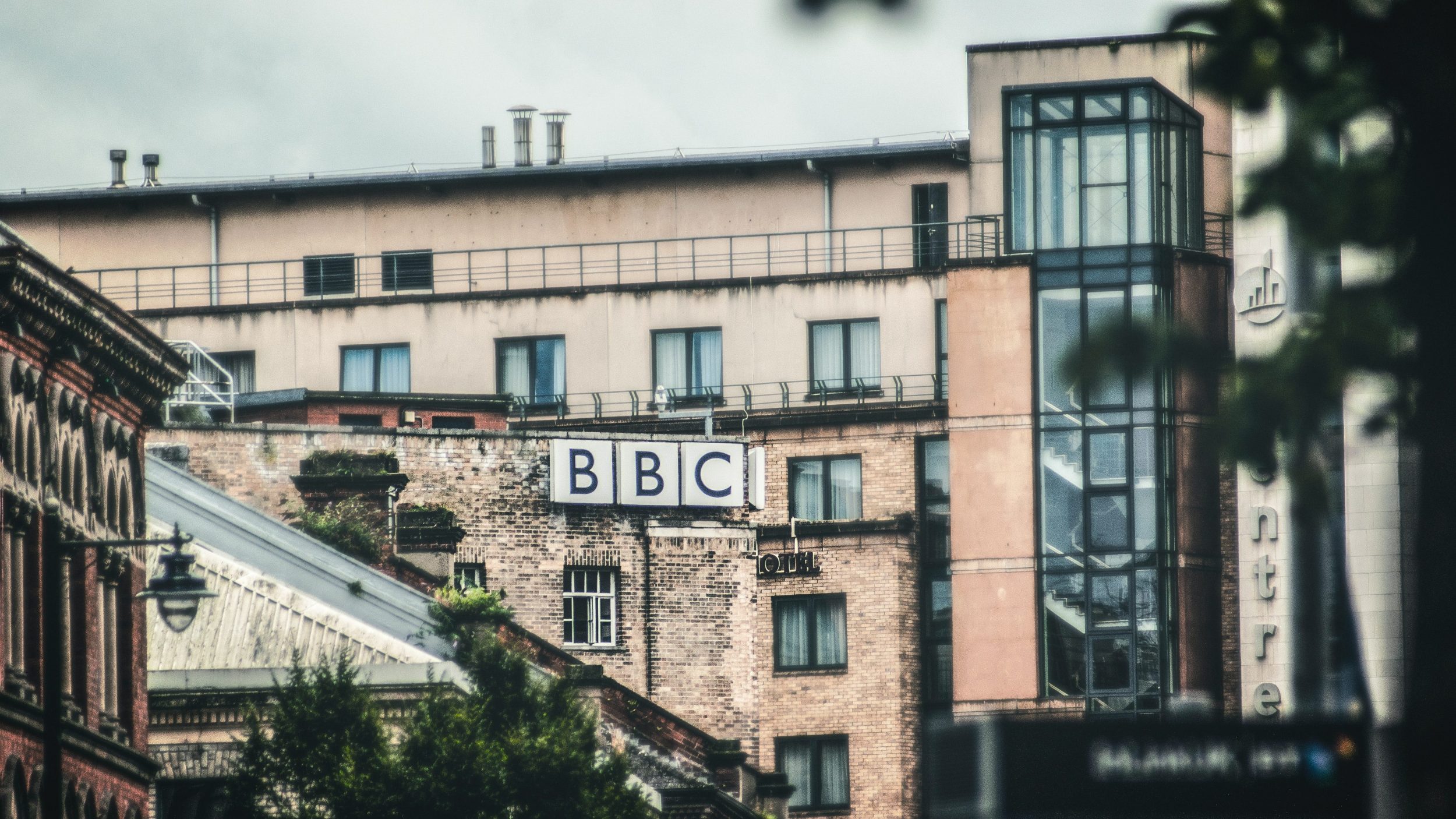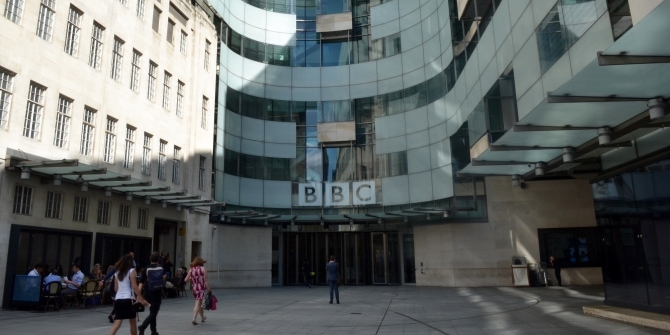 Last month, the UK government announced that it plans to freeze the BBC licence fee (rather than raising it in line with inflation) and is considering scrapping it after 2027. Here, Patrick Barwise, Emeritus Professor of Management and Marketing at London Business School, explains the extent to which BBC funding has already been cut, and questions the viability of replacing the licence fee with a subscription-based service. To learn more about the future of the BBC, join our online public event on 2 March, where BBC Director General Tim Davie will speak about ‘Public Service Broadcasting in its Second Century.’
Last month, the UK government announced that it plans to freeze the BBC licence fee (rather than raising it in line with inflation) and is considering scrapping it after 2027. Here, Patrick Barwise, Emeritus Professor of Management and Marketing at London Business School, explains the extent to which BBC funding has already been cut, and questions the viability of replacing the licence fee with a subscription-based service. To learn more about the future of the BBC, join our online public event on 2 March, where BBC Director General Tim Davie will speak about ‘Public Service Broadcasting in its Second Century.’
Since 2010, the Government has been quietly salami-slicing the BBC’s funding, largely unnoticed. Now, thanks to the latest attack by culture secretary Nadine Dorries, this issue is finally getting the media coverage it merits and people are waking up to the danger. When Peter York and I started researching The War Against the BBC four years ago, some people thought the title a bit over the top. No one says that now.
This latest attack is mostly about money. The BBC’s Achilles’ heel has always been politicians’ control over its income. In 2010, George Osborne (with no published analysis, public consultation or parliamentary scrutiny) cut its funding. In 2015 (after six secret meetings with Murdoch executives, including two with Rupert himself – in my view, the BBC’s most powerful and persistent enemy – but, again, no other consultation) he cut it again.
By 2019, the BBC’s real (inflation-adjusted) public funding was down 30 per cent on 2010 – far more than most people realised – against ever-increasing real content and distribution costs, driven by the US streaming services such as Netflix and Amazon Prime. As the National Audit Office has confirmed, with annual inflation now over 5 per cent, freezing the TV licence fee for another two years (with, again, no consultation) will significantly reduce service quality: fewer original UK programmes, more repeats, and so on.
After two years, households will be saving 31p/week (compared with a deal where the licence fee would increase in line with general inflation) in return for less good TV and radio. No one asked if they see this as a good trade-off.
If the Government tried to abolish the BBC overnight, the backlash would make the 1990 poll tax riots look like a vicarage tea party. Brits still spend an average of over two hours a day using BBC TV, radio and online services – vastly more than any other product or service brand. And, as we explain in our book, despite decades of right-wing newspapers telling us not to trust it, when asked ‘which ONE news source’ we’d turn to for trusted news, half of us pick the BBC – versus 1 per cent or less for each of the papers telling us not to.
But most Britons still take the BBC for granted and a large minority – almost 30 per cent – say the £159/year TV licence fee (for those who have to pay it) represents poor value for money. In 2015, a BBC-commissioned study invited a representative sample of this 30 per cent to live without it for just nine days, in return for nine days’ licence fee (£3.60 in 2015). After nine days with no BBC, two-thirds had changed their minds, having realised how much they used, enjoyed and relied on it and how little it was costing them. (Our understanding is that the BBC has replicated this survey more recently with similar results, to be published shortly.)
A second feature of this latest attack is that the Government has made no attempt to hide the political subtext. The Sunday Times, reporting the funding cut (apparently before the BBC itself had been told), explicitly described it as part of “‘Operation Red Meat’, a platter of eye-catching plans that will appeal to the Tory backbenchers who hold the prime minister’s fate in their hands”.
Dorries has also openly linked the cut to the Corporation’s ‘biased’ news coverage. Newly appointed, she said “Nick Robinson has cost the BBC a lot of money” after Robinson (former Chairman of the National Young Conservatives, so hardly a leftie) interrupted the PM’s evasive word torrent during an interview. Dorries has also said the BBC’s “pervasive, Left-leaning mindset” is “inextricably linked” to its funding level. No previous culture secretary has so flagrantly sought to undermine its editorial independence.
Announcing the funding cut, Dorries confidently tweeted that this would be the last ever licence fee settlement as, from 2028, the BBC would be funded in a new way – probably subscriptions. This was news to her cabinet colleagues, who soon forced her to backtrack. But it helpfully highlighted the practicalities and likely consequences of switching the BBC’s funding to subscriptions.
Since the 1980s, free-market enthusiasts like the Institute of Economic Affairs have repeatedly advocated this switch without ever saying how the different BBC services would be packaged and priced, and likely outcomes. For example: would all the BBC’s services be put into a single bundle with an all-in price or would there be different packages at different price levels? How would BBC Radio, BBC Online and the BBC World Service be funded? And what to do about the 13m-plus homes using Freeview or Freesat, with no conditional access technology (so if they chose not to subscribe, they’d still be able to watch the programmes)? What’s needed is a detailed debate about the pros and cons of alternative BBC funding options, including subscriptions; the free-marketeers may finally, after almost 40 years, have to put up or shut up.
Even the most fanatical free-marketeers have never, to my knowledge, claimed that, for the same range and quality of BBC services, the average subscription would be less than the licence fee. In reality, it would have to be much higher to cover marketing and customer service costs and the missing revenue from households who chose not to subscribe, as we explain in our book. These and other uncomfortable truths about subscriptions – notably the loss of universality and the potential distortion of programming priorities – will finally emerge if and when we have a proper debate about alternative funding models.
Meanwhile, Nadine Dorries’s funding cut will do real damage to the BBC, independent producers and the rest of the UK’s world-class broadcasting system. Is this “Global Britain”?
This article gives the views of the author and does not represent the position of the Media@LSE blog, nor of the London School of Economics and Political Science.





